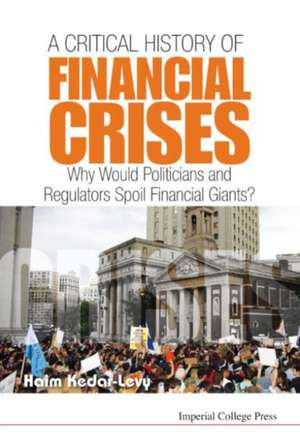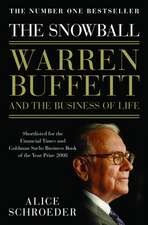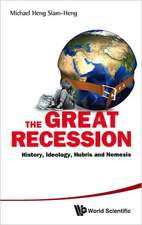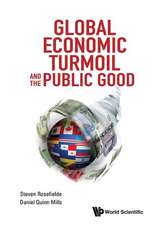Critical History of Financial Crises, A: Why Would Politicians and Regulators Spoil Financial Giants?
Autor Haim Kedar-Levyen Limba Engleză Hardback – 8 feb 2016
Preț: 417.38 lei
Nou
Puncte Express: 626
Preț estimativ în valută:
79.87€ • 83.60$ • 66.47£
79.87€ • 83.60$ • 66.47£
Carte tipărită la comandă
Livrare economică 31 martie-14 aprilie
Preluare comenzi: 021 569.72.76
Specificații
ISBN-13: 9781908977465
ISBN-10: 1908977469
Pagini: 228
Dimensiuni: 150 x 210 x 22 mm
Greutate: 0.64 kg
Editura: WORLD SCIENTIFIC
ISBN-10: 1908977469
Pagini: 228
Dimensiuni: 150 x 210 x 22 mm
Greutate: 0.64 kg
Editura: WORLD SCIENTIFIC
Cuprins
What are Financial Crises?; Defining Financial Bubbles; The Least You Should Know About International And Macroeconomics; Shaky Banking: The risks of "Bank Runs"; The Roaring 20's and 1929 Bubble Crash; The Great Depression of the 30's; The 1983 Systemic Banking Crisis in Israel; Accountants, Politicians, and Big Money: The Failure of Audit and the Confidence Crisis of 2001 - 2004; The Internet Bubble and Crash: 1995 - 2000; The Series of Financial Crises in South America; Shocks in East Asia and the LTCM Collapse; Securitization and the Real-Estate Crisis: US 2003 - 2009; The World Financial Crisis of 2008; Epilogue: Regulation and Boundaries to the Free Market System.















